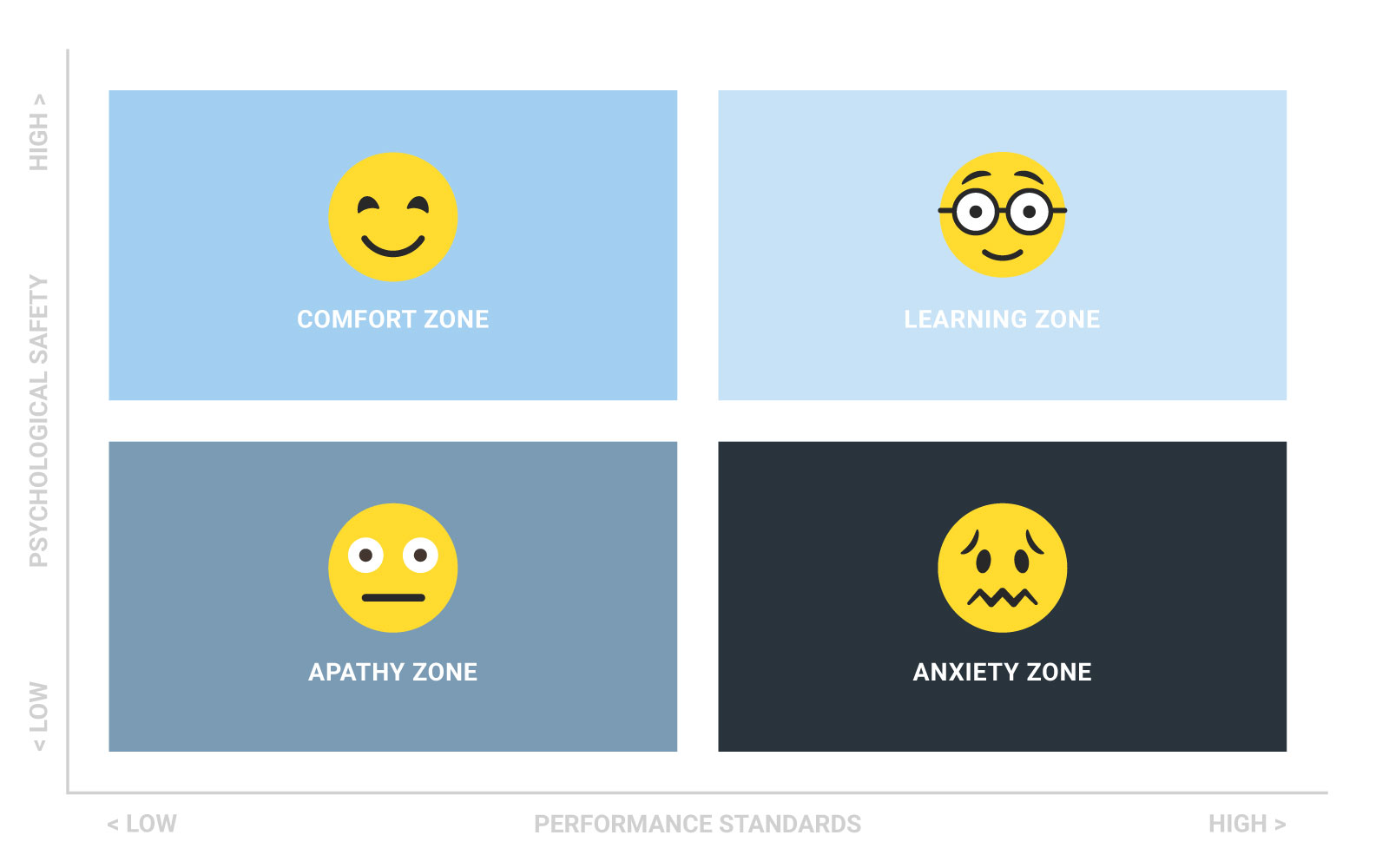
Why organisations should promote psychological safety
Psychological safety sounds like a fluffy feel-good topic: all employees should feel safe. But there's more to it than that. Psychological safety is a basic requirement for any organisation wanting to develop positively.
Earlier this month, I packed my suitcase and headed to SAP in Walldorf, where the Corporate Learning Camp was taking place – a 'BarCamp' conference on learning and development. I had been wondering whether I should hold a session at the event, but I couldn't think of a topic until I stumbled across a post on LinkedIn about "Psychological Safety" and its importance in learning organisations. As I'm passionate about culture, psychology, and lifelong learning, this was right up my street.

What are learning organisations?
In a learning organisation, all employees strive to expand their knowledge to keep up with changing circumstances. For example, organisations can respond to new market conditions and take advantage of new technologies and expertise.
What does this have to do with psychological safety?
Psychological safety sounds like an easy thing at first: everyone is nice to each other; everyone feels completely safe at work. But that's not all it's about. Psychological safety means that employees feel safe enough to address difficult issues, ask questions, ask for help, admit mistakes, give their honest opinions, and challenge the status quo. This is an absolute must for learning organisations because, without all this, ongoing development is not possible.
(Self-)awareness is the first step to improvement
If we don't talk about mistakes, don't ask questions, and don't make or accept suggestions for improvement, we cannot develop. And this is as true for individuals as it is for teams and organisations. What's more, we run the risk of making serious mistakes if we don't dare ask for advice. Serious mistakes can also occur if employees are afraid of voicing their concerns. These mistakes can be costly and even dangerous depending on the type of organisation or profession.
In other words, psychological safety isn’t just that we express our opinions, doubts, and questions honestly, but also that we listen to and accept feedback. Being open to asking and receiving feedback means we are able to go beyond ourselves – we are able to grow as individuals. This also means we must let those have their say who often hold back and usually just accept painful criticism.
A real openness to growth and learning takes us out of our familiar comfort zones. It puts us in the 'learning zone', as the American professor Amy Edmondson illustrates in a diagram. Edmondson is an expert on the subject and points out that the combination of psychological safety and high standards leads us into the learning zone.

How do we achieve psychological safety?
For a learning organisation, psychological safety isn't a one-off goal but a permanent condition that must be nurtured. It's an effort that requires all employees. Leaders can lead by example, e.g. by gratefully accepting feedback or openly talking about their own insecurities.
As a team, psychological safety can be strengthened by asking normally shy or reluctant colleagues for their opinions. If someone questions the status quo and makes suggestions for improvement, we should reflect on these suggestions self-critically instead of labelling the person as a complainer. Psychological safety is a question of team and corporate culture and must therefore be supported by all levels and lived out in our everyday work.
A topic that hits a nerve
I was not sure if this topic would interest the other participants of the BarCamp at all, but I gave it a try. Contrary to my expectations, interest and participation in the session discussion was so great, a second session was spontaneously scheduled for later in the afternoon. I had obviously hit a nerve.
Anyone who has a few years of work experience in different companies under their belt will already know what a difference psychological safety makes. Without this safety, we try to avoid mistakes, don't ask questions and avoid standing up or standing out from the crowd because it can feel unpleasant. But when we reach the learning zone, everyone rises above these psychological barriers that hold us back. If we want to be in a learning zone, we are all challenged. Every single employee contributes to the establishment of the learning zone. And everyone who took part in the session at the BarCamp agreed on this. For some companies, it takes a cultural change to create psychological safety. Is psychological safety just a fluffy feel-good topic? Not really. If companies want to grow and develop, they can hardly afford not to address this issue.

How brand training affects employee loyalty
New, cool brands as far as the eye can see. Their design: modern and to the point. Their appearance: bold and unusual. Their employees: committed and passionate.

What Tinder and Netflix have to do with the future of learning
The media user behaviour of people flocking to companies has changed compared to previous generations. And this has a direct impact on their workplace requirements and personal development opportunities.